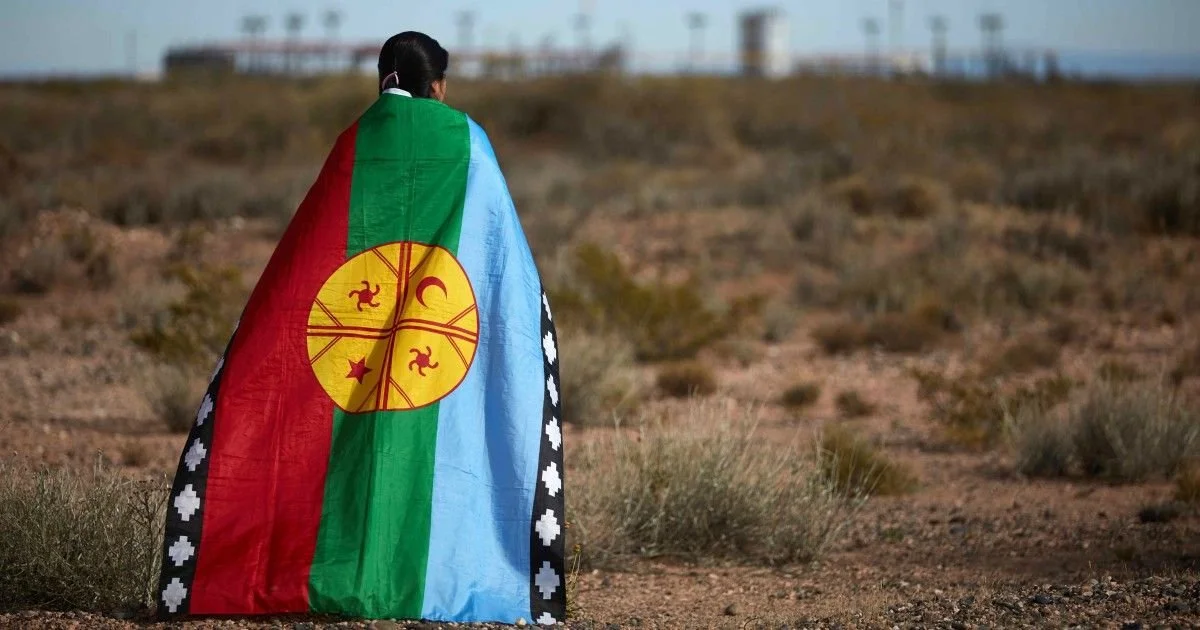Argentine Official Resigns Over Indigenous Rights Abuses
A Mapuche individual walks through tribal land. Source: MercoPress
Elizabeth Gómez Alcorta, the first Minister of Women, Genders and Diversity of Argentina, recently resigned from her position in the Ministry in protest of alleged mistreatment of indigenous individuals by federal law enforcement. The Ministry aims to defend LGBTQ+ rights and combat “inequality and violence (desigualdad y violencia).” However, Gómez Alcorta claimed that police action toward vulnerable indigenous populations was “incompatible” with this ideology.
Gómez Alcorta tendered her resignation on October 7th after the arrests of 12 Mapuche individuals, 7 of whom were women and the 5 remaining minors. They were arrested during an eviction operation as Argentine law enforcement attempted to remove Mapuche protesters who had occupied land in Villa Mascardi, Argentina. While government spokeswoman Gabriela Cerruti claimed that the operation was carried out lawfully, Gómez Alcorta cited numerous human right abuses that took place during the operation as the primary reasons for her resignation. The ex-Minister said that “detainees did not have a lawyer and were denied release” and that a “line [had] been crossed.” President Alberto Fernández accepted Gómez Alcorta’s resignation in the days following her remarks.
The Mapuche nation has long accused the Argentine government and private businesses of “stealing” Mapuche ancestral lands to develop them for tourism, housing, and other capital ventures. Increased government regulation of ancestral lands through legislation like the Forest Law in Northern Patagonia supports these claims by the Mapuche. The Forest Law has benefited private firms at the expense of indigenous settlements by designating Mapuche land for development despite the Mapuche’s ancestral claim to the territory. Fundamental differences between tribal and state law mean that the Argentine government and Mapuche leadership are constantly at odds with one another regarding issues of land ownership. Tribal law—a series of oral traditions passed down by generations of Mapuche—is generally incompatible with codified property rights set forth by governments with roots in colonialism because these legislative systems are “mono-cultural” and fail to consider the history of Argentine indigenous groups.
The Mapuche have pursued active resistance in response to the government’s more recent attempts to privatize indigenous land; in the conflict preceding Gómez Alcorta’s resignation, Mapuche leadership used tactics including arson and occupation to protest alleged land theft by private enterprises and the state; shortly before the incident preceding Gómez Alcorta’s resignation, “militants linked to the Lafken Winkul Mapu community burned down a Border Guard hut at the Los Radales lot in the southern village, also subjecting it to gunfire.” Additionally, Mapuche resistance against the Argentine government has culminated in several other violent incidents like the murders of Mapuche indigenous rights activists Rafael Nahuel and Santiago Maldonado by federal police during government-sponsored eviction operations. Clearly, the most recent eviction operation that prompted Gómez Alcorta’s resignation was not an isolated incident; the Mapuche nation and the Argentine state government have a documented history of conflict over property rights and the use of historically indigenous land.
Conflicts involving Argentina’s 39 indigenous groups and the Argentine state have been constant and sometimes violent; many revolve around issues of discrimination, conflicting claims to land, and gendered violence. High rates of teen pregnancy and obstetric violence pervade indigenous communities. Incidents of indigenous femicides against a “backdrop of Indigenous poverty, marginalisation, and discrimination” also pose a difficult problem to indigenous security and indicate a lack of government action on behalf of indigenous communities. Responses to the murders of Florencia Isabel Torres and Jorgeline Reinoso have been largely unsatisfactory due to perceived “banderismo político partidiario[meaning: partisanship] ” and “discriminación [discrimination]” against indigenous groups lobbying for justice.
From evictions to massacres, the Argentine government has carried out numerous human rights abuses against the country’s many indigenous groups. Though the state government has passed various laws listing indigenous rights, Marzia Rosti of the University of Milan says that “[This legislation] is still far from becoming an effective reality, and they continue to face daily obstacles to the exercise of their rights.” Repeated federal retaliation against indigenous groups’ attempts to reassert claims to lost lands create a stark contrast between laws and reality; clearly, words are not enough to guarantee basic rights to indigenous communities. Despite the passage of protective legislation, indigenous Argentines’ rights to property and safety have been constantly and historically undermined by systematic oppression and a legal system that has proved detrimental to Argentina’s tribal communities. To prove its commitment to indigenous rights, the Argentine government must move beyond legislation and toward implementation of protections for both ancestral lands and indigenous individuals facing insecurity and violence.

